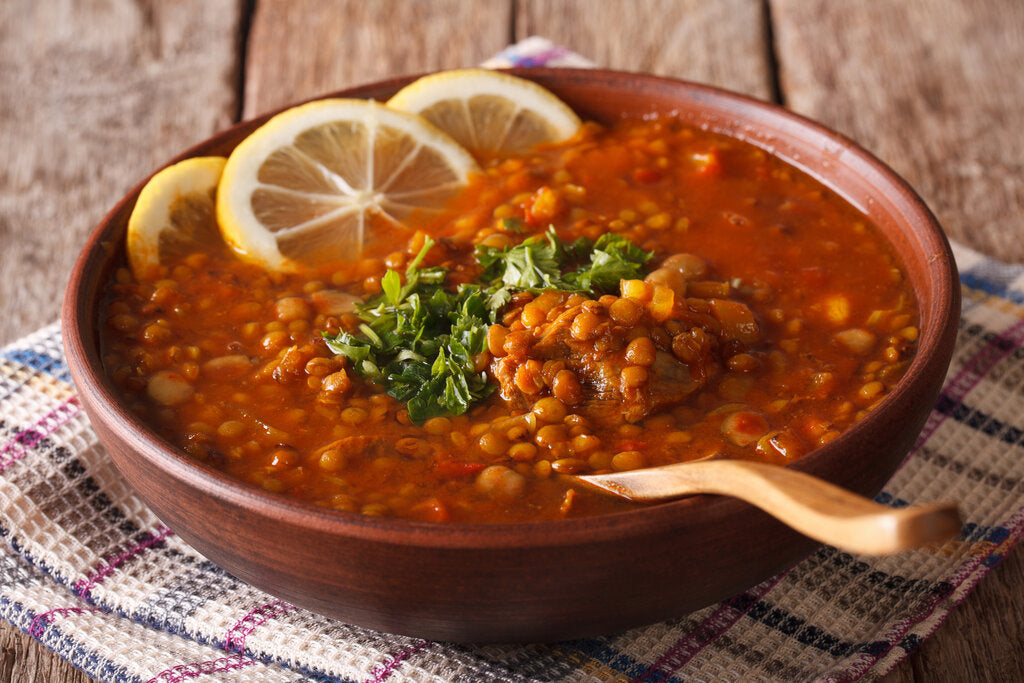Enjoy Mediterranean Food in Las Vegas Like Never Before
Enjoy Mediterranean Food in Las Vegas Like Never Before
Blog Article
Check Out the Flavors of Mediterranean Food: A Journey Through Health and Preference
The Mediterranean diet plan, celebrated not just for its rich tapestry of tastes but also for its numerous wellness benefits, welcomes a closer examination of its beginnings and essential active ingredients. With a structure improved fresh veggies, whole grains, and healthy and balanced fats, this cuisine exhibits a harmonious equilibrium between preference and nourishment. As we explore prominent dishes and their dietary benefits, one have to consider exactly how these elements add to overall health. What makes this culinary practice stick out to name a few dietary patterns? The answer depends on its distinct method to food and wellness.
Origins of Mediterranean Cuisine
Often regarded as among one of the most diverse and vivid cooking practices, Mediterranean food has its origins deeply rooted in the historical and geographical context of the area. Encompassing the culinary methods of nations surrounding the Mediterranean Sea, such as Italy, Greece, Spain, and Turkey, this cuisine has actually progressed over centuries, affected by a confluence of cultures, trade, and environment.
The old civilizations of the Mediterranean, including the Greeks, Romans, and Phoenicians, played an essential function in forming these cooking methods. The exchange of ingredients and techniques amongst these societies promoted a rich tapestry of flavors and cooking techniques. Geography likewise substantially affected the diet plan; as an example, seaside areas leaned greatly on fish and shellfish, while inland regions stressed making use of grains, legumes, and livestock.
In addition, the region's climate, defined by cozy, completely dry summer seasons and moderate, wet winter seasons, facilitated the growing of a large selection of veggies, natural herbs, and fruits. This farming bounty contributed to a cuisine that commemorates quality and seasonality. As a result, Mediterranean food remains not only a representation of its history yet also a testament to the enduring connection in between food, society, and the setting.
Trick Components and Their Advantages
The rich history of Mediterranean food is mirrored in its key active ingredients, which are essential to developing the area's unique tastes. Olive oil, a foundation of this cooking tradition, uses various health and wellness advantages, consisting of heart health and wellness promotion and anti-inflammatory homes. Rich in monounsaturated fats, it offers as a healthier choice to hydrogenated fats.
Fresh vegetables such as tomatoes, cucumbers, and bell peppers are commemorated for their lively tastes and nutritional worth. They are loaded with vitamins, minerals, and antioxidants, adding to overall wellness and well-being. Legumes, including chickpeas and lentils, offer a durable source of protein and fiber, making them crucial for a balanced diet plan.

Popular Mediterranean Dishes
Fascinating diversity identifies preferred Mediterranean recipes, each providing a special blend of flavors and social influences (mediterranean food in las vegas). The area's cooking landscape is rich with staples such as hummus, a velvety mix of chickpeas, tahini, and garlic, usually worked as a dip with pita bread. One more standard is the Greek moussaka, a layered covered dish of eggplant, ground meat, and béchamel sauce, showcasing the consistency of tastes and appearances

Fish and shellfish additionally plays a noticeable function, as seen in recipes like paella from Spain, which combines rice, saffron, and a selection of fish and shellfish, showing seaside influences. For those with a sweet tooth, baklava, a bread made of layers of filo dough, nuts, and honey, offers a rich and indulgent experience.
These meals not only exhibit the cooking virtuosity of the Mediterranean however likewise act as a testament to the area's rich history and social exchanges.
Health Perks of Mediterranean Diet Plan
Countless studies have actually highlighted the wellness benefits related to the Mediterranean diet regimen, which is identified by a high intake of fruits, veggies, entire grains, and healthy fats, particularly olive oil. This dietary pattern has been connected to a lowered threat of chronic illness, consisting of heart problem, diabetes mellitus, and my explanation particular sorts of cancer cells. The focus on plant-based foods supplies important nutrients and antioxidants, which add to general wellness and health.
Research has shown that adherence to the Mediterranean site web diet plan can boost cardiovascular wellness by decreasing blood pressure and cholesterol levels. In addition, the diet plan's anti-inflammatory residential properties may help in taking care of weight and decreasing the risk of obesity-related conditions. The incorporation of fatty fish, rich in omega-3 fatty acids, sustains mind health and wellness and cognitive feature.
Moreover, the Mediterranean diet plan advertises a balanced approach to eating, urging mindful usage and social communications throughout meals, which can improve psychological health and wellness and overall top quality of life. Its varied tastes and nutrient-dense components make it a satisfying and lasting nutritional selection, fostering lasting adherence and numerous health benefits (mediterranean food in las vegas). Welcoming this diet regimen might lead to a more vibrant, much healthier lifestyle

Tips for Incorporating Mediterranean Flavors
Incorporating Mediterranean tastes into your meals can change your eating experience while reaping the diet plan's wellness benefits. To start, make use of a range of fresh herbs and seasonings, such as basil, oregano, and rosemary, to boost the preference of your meals. These fragrant additions not only enhance flavor yet additionally enhance nutritional value.
Next, focus on including standard ingredients like olive oil, tomatoes, garlic, and lemon. Use extra virgin olive oil as your main food preparation fat, sprinkling it over salads or using it for sautéing veggies. Furthermore, tomatoes can be appreciated in various forms, from fresh salads to baked recipes, giving crucial vitamins and antioxidants.
Entire grains, such as farro, bulgur, and quinoa, are likewise crucial components of the Mediterranean diet regimen. Alternative fine-tuned grains with these nutrient-dense options to supply fiber and an enjoyable structure. Moreover, do not neglect to include a selection of beans, such as lentils and chickpeas, which function as excellent sources of plant-based healthy protein.
Conclusion
The exploration of Mediterranean cuisine exposes an abundant see tapestry of tastes and nutritional advantages that contribute to overall health. By emphasizing fresh active ingredients, such as olive oil, veggies, and legumes, this culinary practice not only enhances preference however likewise advertises health. Including Mediterranean meals right into day-to-day diets offers many wellness advantages, making it an engaging option for those looking for to improve their eating routines. Embracing these flavors fosters a much deeper recognition for both cooking art and nutritional value.
The Mediterranean diet, celebrated not just for its rich tapestry of flavors however also for its many health and wellness benefits, invites a more detailed examination of its beginnings and essential ingredients.Many studies have actually highlighted the wellness advantages connected with the Mediterranean diet regimen, which is identified by a high intake of fruits, veggies, whole grains, and healthy and balanced fats, especially olive oil.Integrating Mediterranean tastes into your dishes can transform your eating experience while reaping the diet plan's health and wellness advantages.The expedition of Mediterranean food reveals a rich tapestry of tastes and dietary advantages that contribute to overall wellness. Integrating Mediterranean recipes right into everyday diets supplies countless wellness benefits, making it a compelling option for those looking for to enhance their eating habits.
Report this page